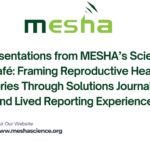By Sharon Atieno | sharonphoebeatieno@gmail.com
The People’s Research Agenda (PRA), a global initiative driven by communities and advocates to express the most urgent priorities, research questions, and recommendations for HIV prevention research, has officially been launched.
The launch led by the AIDS Vaccine Advocacy Coalition (AVAC) took place at the HIV research for prevention (HIV4RP) conference in Lima, Peru.
The Agenda puts forward recommendations to diversify and strengthen the HIV prevention pipeline, enhance investment and financial support for HIV prevention research and development, and guide an advocacy strategy that truly addresses the needs of communities across the prevention pipeline. PRA was developed through intentional consultative processes that used multiple modalities, including surveys, focus groups, convenings, to gather insights about the processes and products needed to actualize HIV prevention justice.
“The PRA wrestled with conversations around: what needs to be prioritized for research, development and delivery, and how these and other phases of action should unfold as we move towards the 2030 targets,” said Grace Kumwenda, AVAC’s Regional Program manager, during the Agenda’s launch.
“It is a living document, to be used as a tool for communities to amplify their priorities and for funders, product developers and policy leaders to have close at hand—as crucial decisions are made about what to invest in, where and why in research and development.”
According to Kumwenda, the PRA has four critical considerations. These include closing the gaps and lost time across the research and development (R&D) lifecycle to ensure no time is lost between each step – from pre-clinical to first-in-human; between each clinical phase; from efficacy to introduction to impact.
It supports community-led and-informed prioritization within and across product categories and in the development, monitoring and updating of target product profiles (TPPs). The TPP outlines the intended use, target populations and other desired product attributes including safety and efficacy.
The PRA Kumwenda said ensures regulatory agencies in resource-limited settings are able to review, support and accelerate first-in-human trials; bio-equivalence, pharmacokinetic and bridging studies; novel efficacy trial designs; and implementation science.
It also builds sustainable, distributive manufacturing and research capacity while facilitating real-time learning across product categories, as well as from other disease areas such as tuberculosis, emerging pathogens among others.
To achieve these, the PRA focuses on two main components. The strengthening engagement processes component calls for deliberating, delineating and democratizing research decision-making processes.
In deliberating, the more than 130 advocates representing 20 countries who participated in the PRA’s formulation observed the need to involve impacted communities in the discussions that lead to decisions about which products to develop, which experimental trials to embark on and which products to not develop if there are existing comparable products on the market.

In delineating, they observed the need for clarity on which candidates are developed and why. They identified the need for clarity about why additional products might be developed for categories where several approved options exist, and for clarity about why products should be developed that may meet the needs of a specific population or groups. This ensures choice and equity.
In democratizing, decisions must be made transparently, collaboratively and in contexts where all impacted stakeholders have a chance to influence the outcome. It calls for a people-centered process in which voices, values and visions are shared, weighed and used to shape equitable distribution of human, technical and financial resources.
Under the products and priorities component, the PRA calls for supporting a choice-based prevention agenda with clear and realistic target product profiles that reflect the current and future landscape of HIV prevention. This includes the availability of long-acting PrEP, and addressing access, cost and regional manufacturing priorities.
The new products should balance filling a gap in the prevention toolbox with additions to existing products that make them more accessible and streamline uptake.
It also addresses the need to identify and anticipate trial design issues (feasibility, cost, size, regulatory pathways) and implementation science questions so that the timeline from evidence to impact and to widespread access is as short as possible. Initiate access planning during efficacy trials to ensure a swift rollout.
This component also calls for focusing and investing in social and behavioral science that explores end users’ needs and preferences, informs target product profiles, and identifies and addresses social and structural barriers in HIV prevention.
Additionally, advocacy should be maintained across product categories to fill important gaps in a comprehensive HIV prevention toolbox. There should be clarity around complex regulatory pathways.
A full-length PRA report will be released in December 2024, with additional infographics and information on how the first iteration of the PRA was developed, how to provide additional feedback on the priorities, and to find out the progress made.









